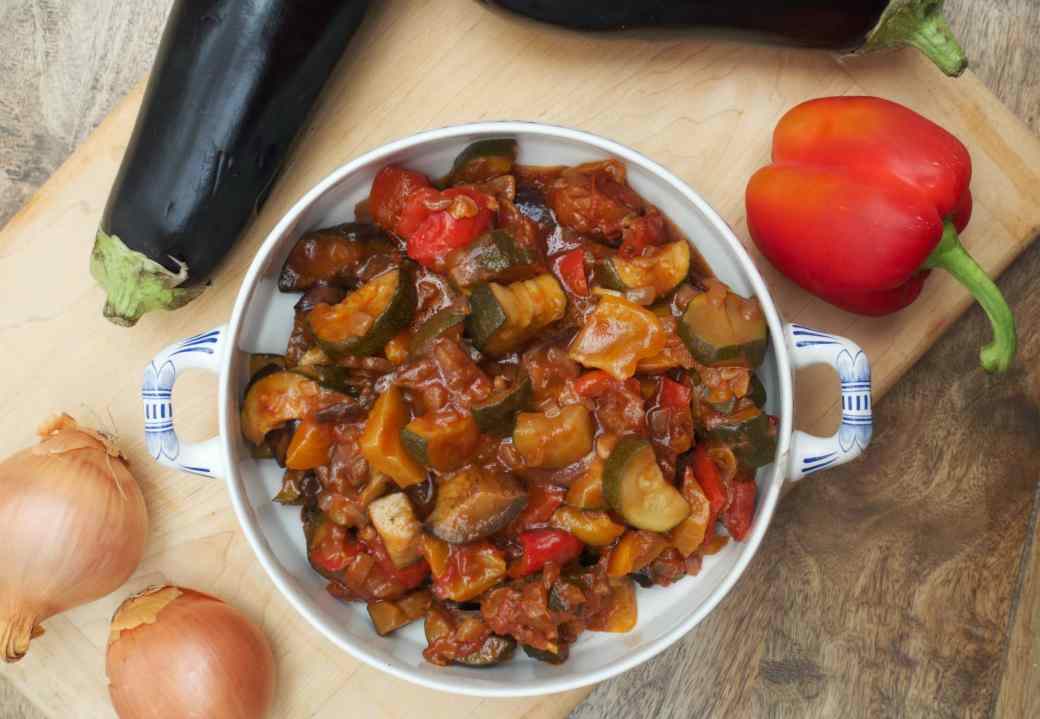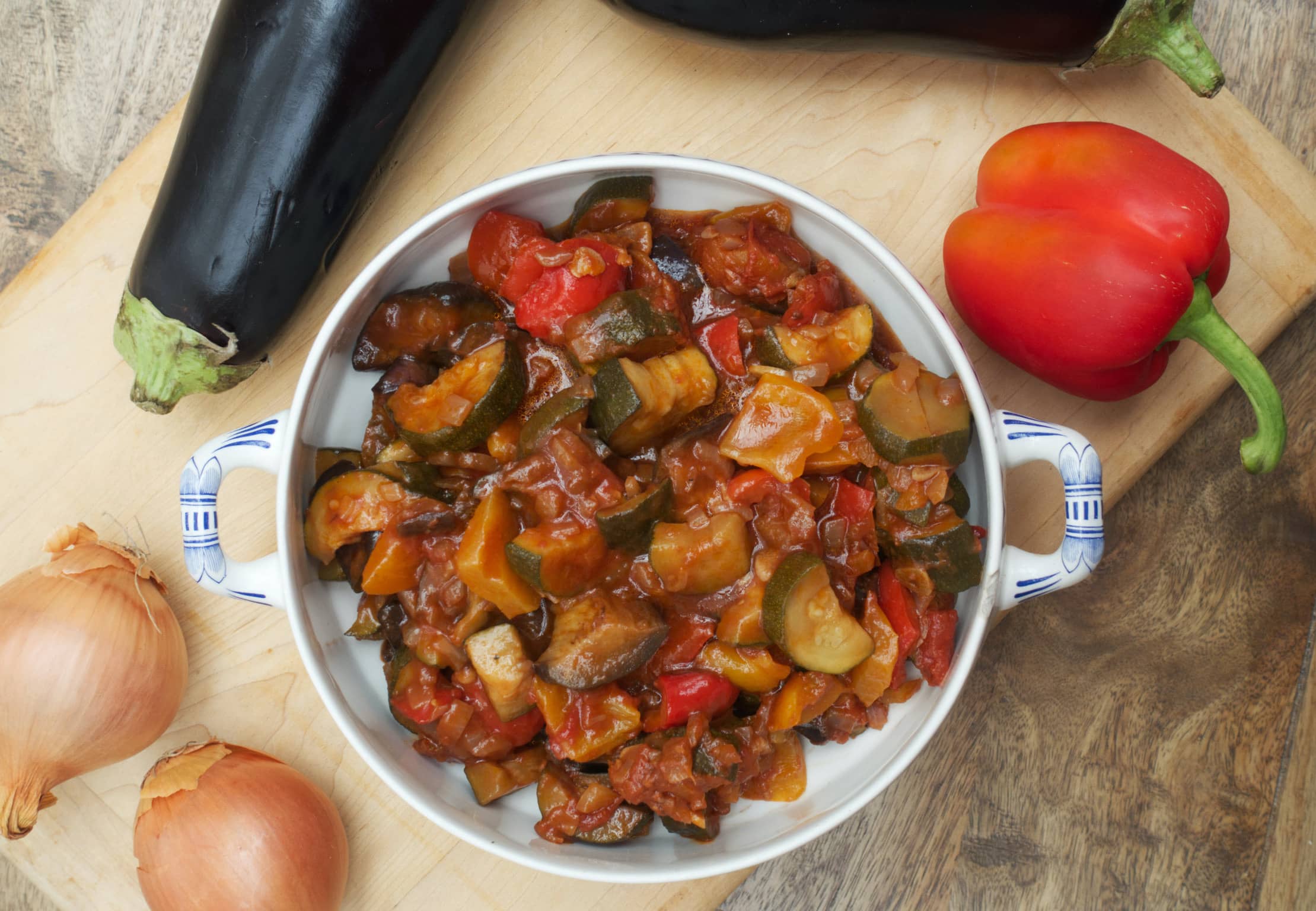There aren’t many veggie stews that can lay claim to being immortalised in popular culture. Fewer still that could then complain about being grossly misrepresented. But then ratatouille is no ordinary vegetable stew.
Ratatouille is a Provençal dish, made by gently cooking aubergine, courgette, and red peppers, with a tomato sauce flavoured with onion, garlic and herbs. It is, in many ways, extremely simple. But for all its simplicity, it remains the subject of confusion.
If you watch Pixar’s Ratatouille, you will see the terrifying food critic, Anton Ego, reduced to a Proustian state of rapture when served what we are told is ratatouille, making him recall his childhood and his mother’s cooking. However, that beautiful pile of perfectly sliced and layered vegetables that we see on screen is not the traditional ratatouille. It is instead confit byaldi, a variation on the more rustic ratatouille, created by French chef Michel Guérard, and made famous by Californian super-chef, Thomas Keller.

Get Britain's best politics newsletters
Register to get The Spectator's insight and opinion straight to your inbox. You can then read two free articles each week.
Already a subscriber? Log in







Comments
Join the debate for just £1 a month
Be part of the conversation with other Spectator readers by getting your first three months for £3.
UNLOCK ACCESS Just £1 a monthAlready a subscriber? Log in